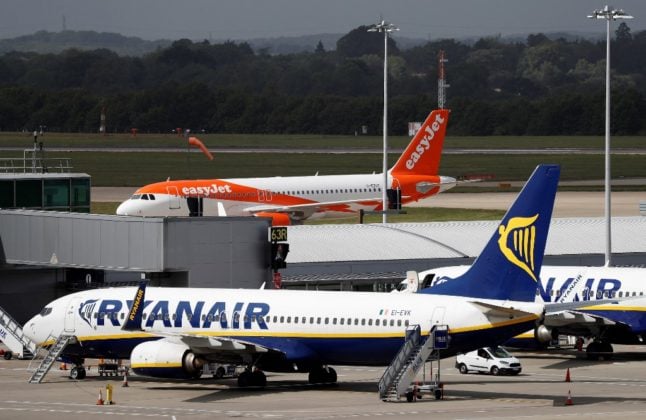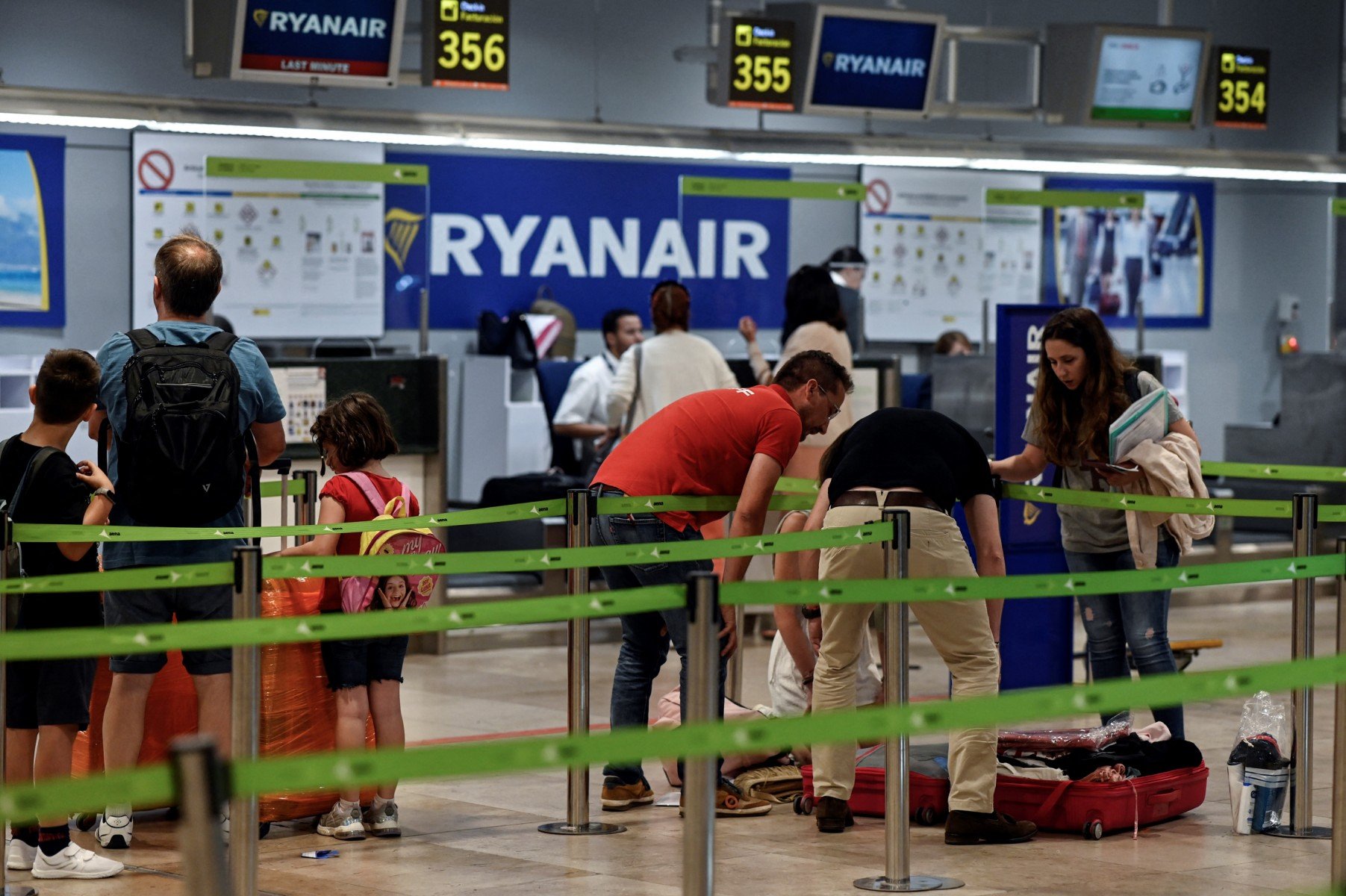The six-month blockage on South Africans travelling to Germany has been one of the longest and most severe of any of Germany’s Covid-related travel bans.
Since January 30th 2021, South African residents have been denied entry to Germany for anything other than ‘essential travel’ – a definition that includes competitive sports events and medical treatment, but not family reunification, work or study.
READ ALSO: Brazilian workers and students demand end to German travel ban
South Africa’s German Embassy is also refusing to issue Schengen Visas for the duration of the ban, meaning that even those who have a valid reason to be in the country – such as visiting loved ones, starting a new job, or finishing a University degree – have been unable to even set foot on European soil.
Delta now dominant in South Africa
At present, the African nation is one of 11 ‘virus variant areas’ on the Robert Koch Institute’s list of Covid risk areas. According to the information on the German Foreign Ministry’s website, this is due to “new, more contagious variants” of Covid-19 that are present in the country, such as the Beta variant, which was first discovered in South Africa.
However, activists have pointed out, much like in Germany, the Delta variant is by far the most dominant strain of Covid in South Africa, while the Beta variant now makes up a tiny and rapidly declining share of the country’s infections.
READ ALSO: IN NUMBERS: Where are Covid cases rising in Germany – and what does it mean?
On Wednesday 21st July, Beta accounted for just 3.7 percent of Covid cases in the country, while the Delta variant accounted for 77 percent.
On the same day in France, almost one in 10 Covid cases were Beta infections. France, however, is currently listed as a ‘basic risk area’ by the Robert Koch Institute (RKI), meaning travel between people can travel between the two countries with minimal disruptions.

The Beta variant, which was first discovered in South Africa, now accounts for nine percent of Covid cases in France, and only 3.7 percent of cases in South Africa. Photo: picture alliance/dpa/AP Pool | Daniel Cole
“The Robert Koch Institute published on July 5th that Portugal, Russia, the UK and India have been downgraded from ‘virus variant’ countries to ‘high incidence’, thereby easing the travel restrictions,” activist Kelly Dido told The Local. “Nothing changed for South Africa – although we are Delta dominant too.”
READ ALSO: EXPLAINED: Germany’s new travel rules for the UK, Portugal and India
“There is no real reason for SA to be singled out (based on the Beta variant) because, like most countries in the world, we are now seeing the dominance of the Delta Variant,” Dr. Richard Lessells from South Africa’s Research Innovation and Sequencing Platform confirmed.
‘No longer justified’
In their open letter addressed to numerous German officials, the frustrated campaigners urged the German government to be transparent about their criteria for deciding on the categorisation of ‘risk areas’.
“There is no public framework that allows us to understand the basis of these decisions, the criteria, and how each country ranks,” said Dido. “The commission responsible for these decisions should not only publish changes but the respective objectively quantifiable criteria.”
In their independent research, the group – which operates under the names LoveIsNotTourism, EducationIsNotTourism and WorkIsNotTourism – say they have found several “discrepancies” between how countries have been treated by German health officials, including differences in how countries are classified and whether visas are allowed to be issued.
“This has led us to believe that the travel ban on South Africans is no longer justified,” added Dido.
Other countries have gained the support of their government to restrictions lifted. Can @PresidencyZA @DIRCO_ZA @GermanyDiplo @GermanEmbassySA @Radio702 please support in expediting this matter. People’s livelihoods are at stake ! #WorkIsNotTourism #EducationIsNotTourism https://t.co/xBurxDRKtD
— Vìçrí0 🇿🇦 (@Vicari0) July 22, 2021
Though the ban on South Africa has been the “longest and harshest” and led to lost opportunities abroad and long periods of separation from loved ones, the group says their complaints have fallen on deaf ears.
“We are fighting for our fundamental right to see our families and partners, our right to education and employment,” they wrote in their open letter. “Since the beginning of the pandemic, our voices have not been heard enough by all Member States’ governments. Over a year after the pandemic’s beginning, we are still fighting the fight and need your help.”
‘Our lives are at a standstill’
With the continued uncertainty of the travel ban, the 100-strong group of South Africans say their lives have been put on hold.
“It’s been three months since I earned a job offer to work in Germany – a dream come true, but instead, the travel ban keeps me from
pursuing my dreams,” said Dido.
“My visa application is approved, yet I’m not allowed to begin this new chapter of my life. Every day I check the news, patiently waiting to hear when I can board a flight to continue my career. I only wish to grow professionally and contribute economically to the country.”
@EUCouncil @EU_Commission. Unfair that after studying at a leading Univ. in EU and contributing to EU's engineering research; I have been denied (>6 mo.) from further working due to unsound decisions on 🇿🇦. @rki_de @GermanyDiplo @BMI_Bund @HeikoMaas @jensspahn #WorkIsNotTourism
— Plutus (@King_Dris) July 21, 2021
With the expectation of moving abroad, Dido says she wrapped up her life in South Africa – only to find that she was unable to start her new one in Germany.
“I’ve given up my job, my apartment, my livelihood for this move,” said Dido. “I now have none left – only a depleting savings account. I go vagabonding about the world, moving from home to home, hesitant to settle down as anything can change at any moment. But nothing has changed. It’s been months now.”
Now, the group is demanding that the German government downgrade South Africa from a virus variant area, implement a more transparent decision-making framework, issue the visas that have been approved by the German Embassy for work, study, and visiting loved ones, and “provide equal treatment” to countries globally.
“Our lives are at a standstill, a discouraging limbo,” they wrote.
“Sadly, this has put a strain on our lives, giving rise to various severe mental health issues.
“We plead to the RKI and Ministries responsible to re-evaluate the South African status and make the reasonable adjustments to include exceptions for employment, studies, marriages and those in binational relationships. We plead to the German Embassy for support to get our visa applications processed. We plead to our Foreign Minister, Dr. Naledi Pandor, to support and table our concerns.”
The Local has contacted the German Ministry of Health and the Foreign Office for comment, but has not yet received a response.




 Please whitelist us to continue reading.
Please whitelist us to continue reading.
Member comments